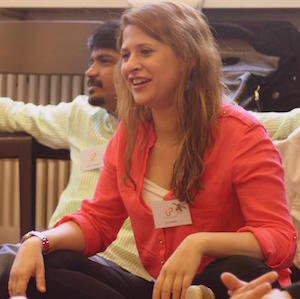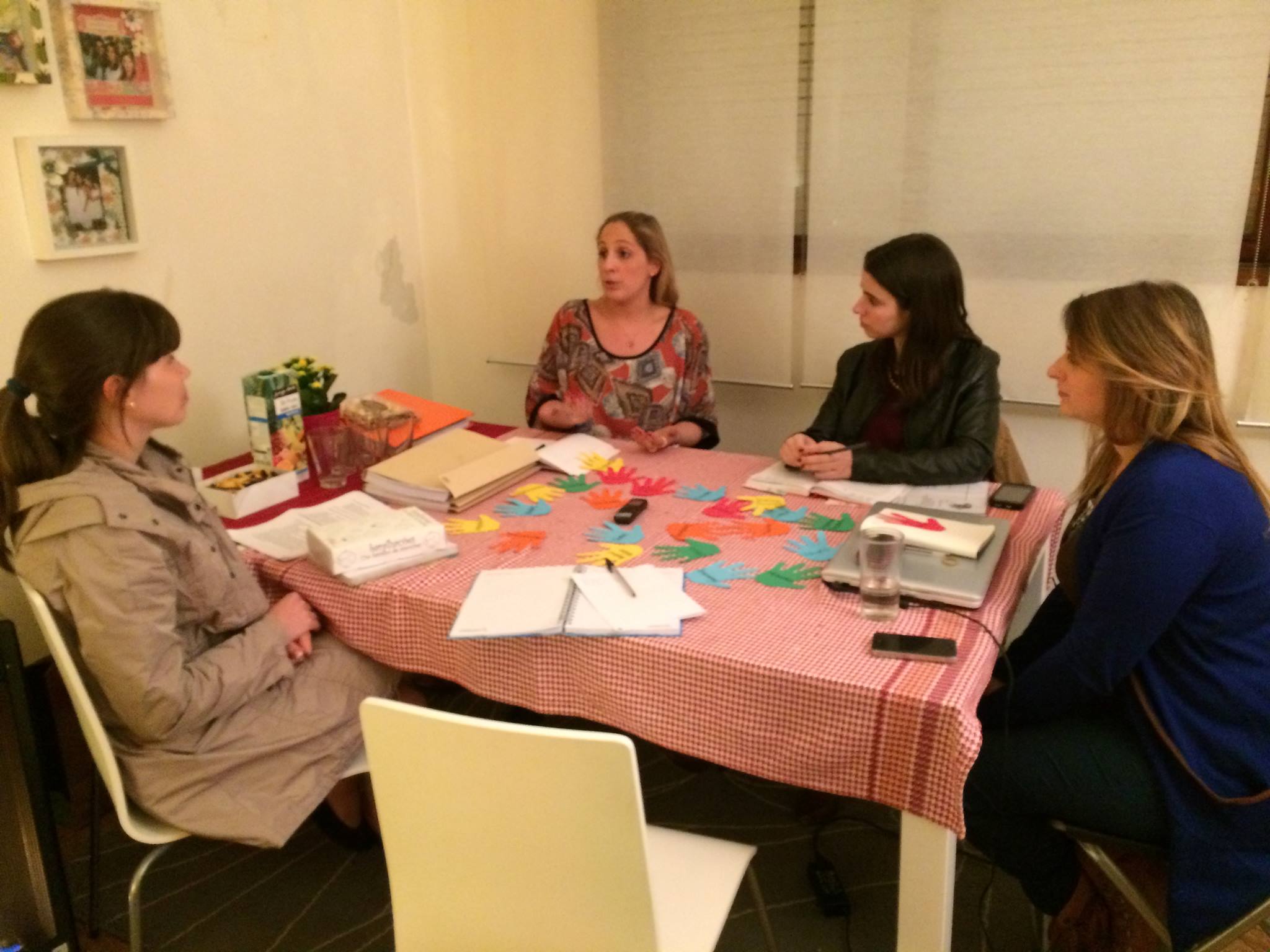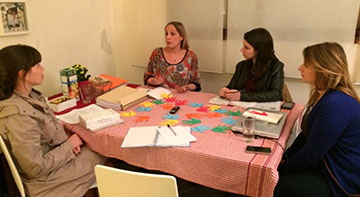
GNRC Portugal has been implementing the Learning to Live Together Programme with families under the framework of the new Arigatou International Geneva initiative titled Strengthening Family Systems. We interviewed Ms Rita Esteves, who is coordinating the project in Portugal to learn more about the experiences, challenges and learnings.
How would you describe the implementation process that is being carried out in Portugal in the framework of the Strengthening Family System programme?
We started the implementation of the Pilot Project of the Strengthening Family Systems in three different locations with very different backgrounds. The first one is Junta de Freguesia do Bonfim, a local government institution that supports their community through social workers and phycologists who assist the population. We work with 11 participants from this institution.
The second institution is Associacao Católica Internacional ao servico da Juventude Feminina (ACISJF), a religious institution where women live temporarily with their children due to lack of housing or domestic violence. We have have worked with 11 women.
The third institution is Obra de Frei Gil, a foster care center, that hosts children who have temporarily been moved away from their biological families for various reasons. The participants were the caregivers of these children (mothers, grandmothers and stepfathers) and also other caregivers who attend a center with which the institution has a partnership. We have worked with 13 participants.
The majority of participants are single mothers with children, and other caregivers who are unemployed and haven’t had education opportunities.
Our main objective was to provide to these families a different approach about values and a safety space to think and reflect about their role as parents or caregivers and also about the rights of children.
How have the sessions been conducted?
All the sessions were prepared using the learning methodologies and approach of the Learning to Live Together manual. We used very dynamic and visual aids to support the sessions because many of the participants are illiterate, with very basic education and some with cognitive difficulties. We focused on experience-based methodologies and based our work on the ecological systems theory for the development of children and to work better with the different dynamics that affect the family.
 What are the expected outcomes that you and your team have with this implementation?
What are the expected outcomes that you and your team have with this implementation?
Our expectation was to create a safe environment, different to what the participants are used to, for them to share their deepest thoughts and feel appreciated. We also expected the families to get engaged in the process given the participatory methodologies of the Learning to Live Together manual, which are so different to what they are used to.
What are the participants’ perception regarding the pilot implementation?
Participants have expressed that they enjoyed a lot the sessions, and they felt safe to exchange ideas, share stories and experiences, to think about their role as parents and caregivers. They feel sorry that the project had finished and made themselves available for future sessions.
________
The pilot project is being finalized and the main findings of the process, including learning from the facilitators, observations from participants, inputs regarding the use of the educational framework and approach of the Learning to Live Together programme will be compiled and analyzed, vis a vis other pilot projects in Ecuador, India and the United States. The Interfaith Council on Ethics Education for Children will be discussing the findings during their upcoming meeting in August.
